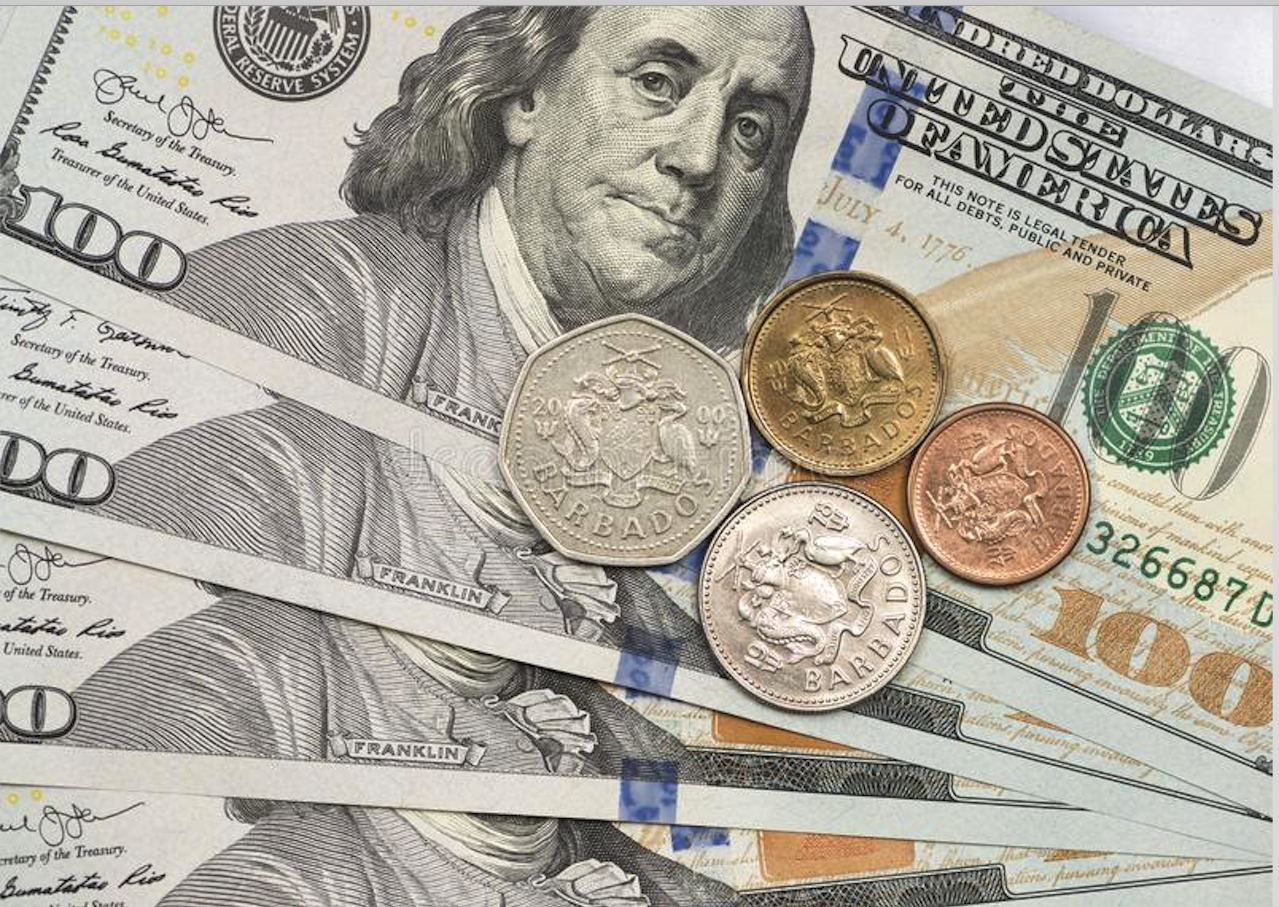Disclaimer: The views and opinions expressed by the author(s) do not represent the official position of Barbados TODAY.
by Adrian Sobers
“I permit you to mint your own coinage as money for your country.” – 1 Maccabees 15:6
The reasons for the decline of the Roman empire are legion (ba dum tss), but one of the main reasons was the debasement of its currency. Mark Steyn’s opening in Dependence Day doubles as a reflection on Rome’s fall: “Decline starts with the money. It always does.” Steyn also cites Jonathan Swift, the Anglican cleric and essayist, who shed light on our modern monetary system.
“A baited banker thus desponds, From his own hand foresees his fall, They have his soul, who have his bonds; ’Tis like the writing on the wall.”
More noticeable than who has your bonds (and by extension your soul) is the writing on the wall of the global economic house of cards. It’s in ALL CAPS, 150 point Times New Roman, but our monetary (and fiscal) masters seem oblivious, or perhaps, they simply do not care.
Henry Thornton (Nature and Effects of the Paper Credit of Great Britain) cites a Dr. A. Smith “who observed, that ‘in every country the avarice and injustice of princes and sovereign states, abusing the confidence of their subjects, has by degrees diminished the real quantity of metal in their coin.’” “This was an evil to which, in times of difficulty, like the present, all nations were prone.”
Arkadiusz Sieroń (Money, Inflation and Business Cycles) reminds us that this is nothing new.
“Debasement of the coin was historically the first and the longest used method of increasing the global money supply.” One method was to raise “the face value without changing the precious metal content in the coin.” Once the plebeians caught on they discounted the coins to reflect the actual value which led to an increase in the prices of goods and services.
The debasement of coin then and (fiat) currency today depends on an asymmetry of information between princes (powers that be) and the plebs (people). Sieroń explains that the basic difference between debasing the coin versus fiat currency is quantitative. The latter allows for monetary inflation on a much larger scale (what we are experiencing now, which affects the price of goods and services).
“The Roman denarius fell over a period of about 270 years,” writes Sieroń, “while the French assignat or the American continental currency took only a few years
to disappear.”
This is, of course, only a brief sketch. The reader wishing to go deeper into the economic history of Rome should consult Money and Government in the Roman Empire by Richard Duncan-Jones.
Milton Friedman was right: money matters. And, closer to our point, so is Richard Duncan: the global money supply matters. Lectures on the climate “crisis”, ignoring the actual one concering currency, are sometimes punctuated by the reassurance that quantitative easing worked by “stimulating” the economy. The pandemic, Putin, and petrol acted as luminol on this narrative to reveal the bloodbath at the quantitative easing crime scene.
Fun fact: The US current account deficit ($23 billion October-December 2021) is the highest it’s been in nine years. (Nothing political, Democrats and Republicans are different wings of the same bird of prey.) Now riddle me this: How long will the rest of the world continue to finance the US current account deficit?
Alan Greenspan gave a speech on November 19, 2004 as Federal Reserve Chair that was striking for two reasons. He broke character and policy (only the Treasury Secretary is allowed to discuss the value of the dollar). His speech is worth revisiting because it contains an important question that we should soon get an answer to.
“It seems persuasive that given the size of the US current account deficit, a diminished appetite for adding to dollar balances must occur at some point. But when, through what channels, and from what level of the dollar?”
The decline starts with the money; always has, always will. It is a matter of sovereignty. Little wonder the only Sovereign One said, “Bring me a denarius and let me see it.”
Adrian Sobers is a prolific letter writer and commentator on social issues.




